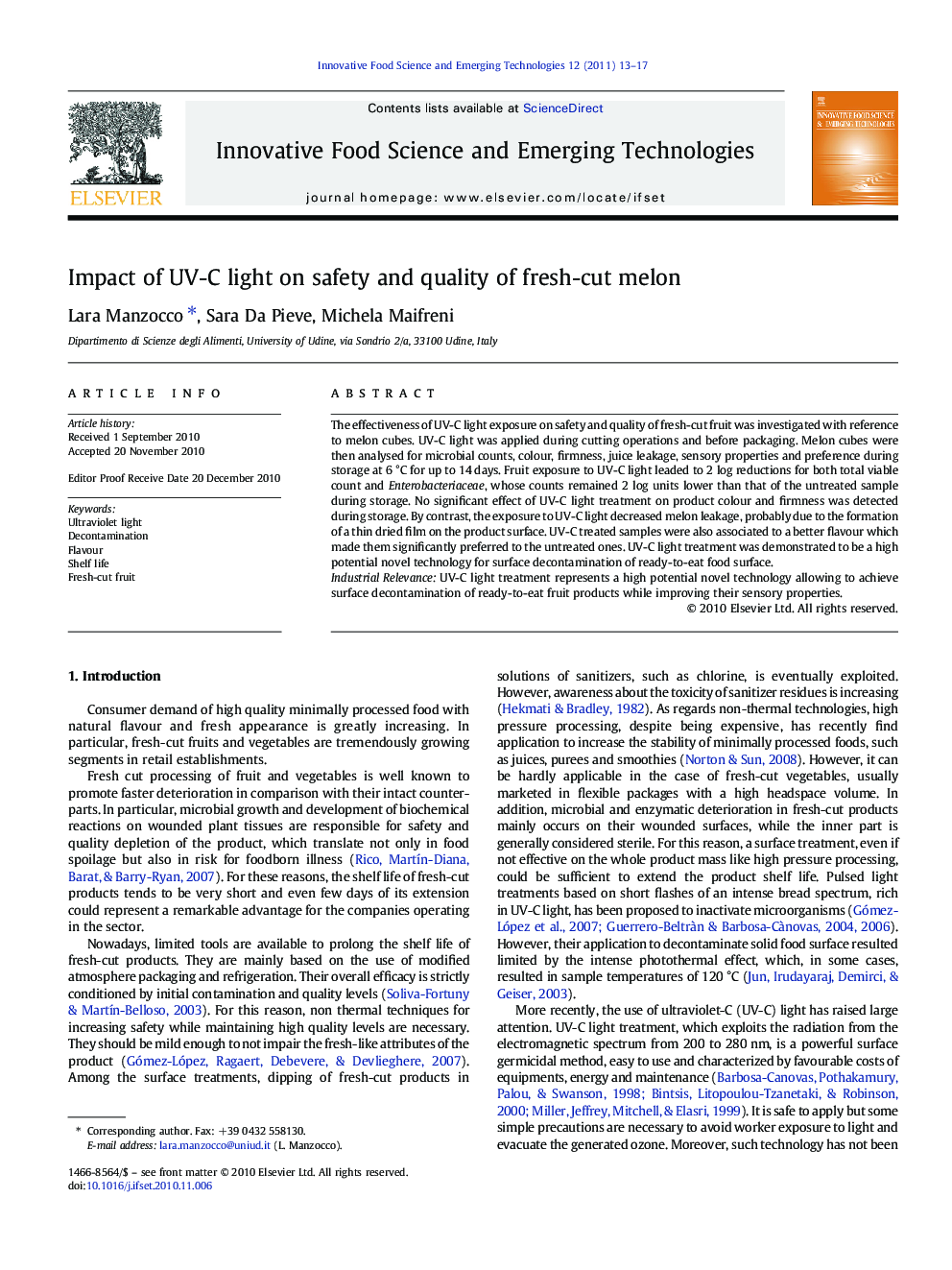| Article ID | Journal | Published Year | Pages | File Type |
|---|---|---|---|---|
| 2087090 | Innovative Food Science & Emerging Technologies | 2011 | 5 Pages |
The effectiveness of UV-C light exposure on safety and quality of fresh-cut fruit was investigated with reference to melon cubes. UV-C light was applied during cutting operations and before packaging. Melon cubes were then analysed for microbial counts, colour, firmness, juice leakage, sensory properties and preference during storage at 6 °C for up to 14 days. Fruit exposure to UV-C light leaded to 2 log reductions for both total viable count and Enterobacteriaceae, whose counts remained 2 log units lower than that of the untreated sample during storage. No significant effect of UV-C light treatment on product colour and firmness was detected during storage. By contrast, the exposure to UV-C light decreased melon leakage, probably due to the formation of a thin dried film on the product surface. UV-C treated samples were also associated to a better flavour which made them significantly preferred to the untreated ones. UV-C light treatment was demonstrated to be a high potential novel technology for surface decontamination of ready-to-eat food surface.Industrial RelevanceUV-C light treatment represents a high potential novel technology allowing to achieve surface decontamination of ready-to-eat fruit products while improving their sensory properties.
Research Highlights►UV-C light causes 2 log reductions in total viable count of melon cubes. ►UV-C light inhibits microbial growth during storage of fresh-cut melon at 6 °C. ►UV-C light does not affect colour of melon cubes but promotes better flavour. ►UV-C light forms a thin dried film on fruit surface, hindering juice leakage.
